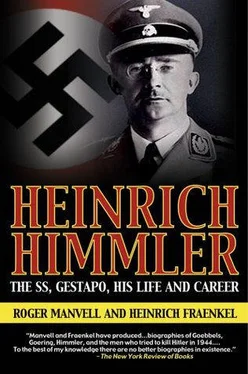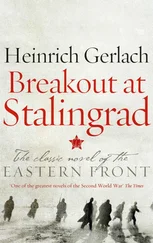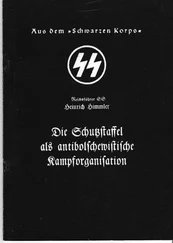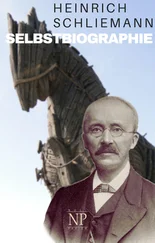20
In 1944 Himmler was to be formally recognized as the father and official guardian of his illegitimate son and daughter. See Chap IV, Note 14. Himmler’s relationship with Hedwig, who was known affectionately as Häschen, amounted to a form of bigamous marriage, and there is no doubt that she represented the lasting love of Himmler’s life. Frau Heydrich told H.F. that Himmler’s whole manner changed when he developed this relationship with Hedwig; he became for a while more relaxed and human. As a result of her situation, Hedwig lived a very enclosed life, but she was both liked and respected by all who came in contact with her. At one stage, Himmler wanted to divorce his wife and marry Hedwig, but she refused to let him do so for Gudrun’s sake. In conversation with H.F., Schwerin-Krosigk, Hitler’s Minister of Finance, reported that Hanna Reitsch, the famous Nazi woman aviator, had told him of her experiences immediately after the war when she was confined for questioning along with Hedwig. Himmler’s mistress told her how much she had loved Himmler, and how good he had been to her. Hedwig is now married and wishes to forget the past; her two children by Himmler were given other surnames.
21
The five ‘required’ sports which caused so much trouble for the older men who were expected to qualify in them, just as Himmler desired to do, were sprinting, swimming, long-distance running, the high or long jump, and putting the shot or javelin. Achieving a sports badge was made obligatory for all S.S. men, and Himmler, after months of training mostly at the Junkerschule at Bad-Toelz, had to be deliberately deceived by his subordinates that he had in fact passed the necessary tests. When men, such as Baldur von Schirach, regarded as valuable over-strained themselves to fulfil Himmler’s sports requirements Hitler became annoyed with the idea.
22
See Kersten’s Memoirs, pp. 294, 306.
23
See N.C.A. IV, pp. 616-34 for the text of this speech.
24
In our book Hermann Göring, we followed Wheeler-Bennett in his Nemesis in placing this challenge as being sent after the hearing. It seems more likely, according to Reitlinger, that the challenge was sent during February. The story of the challenge came originally from Otto John.
25
Memoirs, p. 32.
26
It is possible that Eichmann was already in Vienna. See Reitlinger, The Final Solution, pp. 25-6, and Lord Russell, The Trial of Adolf Eichmann, p. 186.
27
During the winter of 1938-9, Himmler formed two companies, Deutsche Ausruestungswerke and Deutsche Erd- und Steinwerke for this purpose. They were administered by the business management department of the S.S. under Oswald Pohl, who had been a Paymaster-Captain in the Navy. See Reitlinger, The S.S., p. 257.
28
See Henderson, Failure of a Mission, p. 111.
29
See I.M.T. III, pp. 191-2.
1
Gisevius in To the Bitter End, Kersten in the Memoirs , and Hoettl in The Secret Front , pp. 44 et seq.
2
After the war, H.F. interviewed Madame Kitty in Berlin to obtain further details of this exclusive and specialized establishment. By no means all the women who worked there were high-class professional prostitutes; some were young society women who volunteered for service, posing as patriots. Kitty told H.F. that though Ribbentrop was a frequent visitor, Goebbels only came once; he exuded charm, viewed a lesbian display, but declined to patronize any of the girls. Neither Himmler nor Goring thought fit to visit a place of this kind.
3
In conversation with H.F., Werner Best, who also had to work closely with Heydrich, confirmed his insatiable ambition, his intelligence and his ruthless energy. He is certain Heydrich aimed to supplant Himmler, and even possibly Hitler himself. He deliberately set out to terrorize his subordinates, and he was always making sarcastic remarks to Best on account of his legal training. However, he made something of a confidant of Best and spoke to him on one occasion about his supposed Jewish ancestry. There was, said Heydrich, a man called Suss among his forebears, but he claimed, quite reasonably, that Suss was not an exclusively Jewish name. (See also Chapter II, note 4). Wolff’s view of Heydrich given to H.F. during an interview, is that he was able and efficient, but a most unpleasant man.
4
Frau Heydrich has denied to H.F. that she ever had intimate relations with Schellenberg. Nor does Schellenberg himself claim as much. No doubt it was one of Heydrich’s sadistic exercises to try to make it seem that his wife was unfaithful and his subordinate guilty. Though at the start of his career, Schellenberg may have been associated with interrogations involving torture, he managed after the war to dissociate himself completely from the worst excesses of the S.S. and Gestapo. Nevertheless, when he was sentenced in 1949 to six years’ imprisonment dating from 1945, he was regarded by his judges as involved in the execution without trial of a group of Russian prisoners. He was released in 1951 because of his ill-health, and died of a kidney disease in Turin in 1952. He began to write his lengthy memoirs while in hiding in Sweden after the war, and resumed them again as soon as he was released. His wife negotiated their posthumous publication in England in 1956, and H.F. read the original typescript which ran to some 3,000 pages. The memoirs as published have had much inessential and repetitive material deleted.
5
Not to be confused with R.U.S.H.A., the original S.S. marriage office, which was later also concerned with kidnapping children of Nordic blood for German upbringing.
6
For the origin of the Einsatzgruppen in Heydrich’s S.D. offices as early as 1938, see Crankshaw’s Gestapo, pp. 146-52, Reitlinger’s S.S., p. 126 et seq,. and Shirer, op. cit., pp. 958-64.
7
Himmler was frequently forced to discipline the greed for land of these new German settlers, uprooted from their homes and anxious to win the most they could out of their new circumstances.
8
See Cohen, op. cit. pp. 106-8. The figure of 60,000 was Brack’s own estimate for Germany. The Czechoslovak War Crimes Commission estimated some 275,000 mental patients and old people exterminated. For the details of procedure in Germany, see The Death Doctors, p. 236 et seq.
9
See Shirer’s Berlin Diary, pp. 569 et seq.
10
See The Death Doctors, p. 265.
11
Himmler’s famous edict exhorting S.S. men to procreate before leaving for the front was issued in printed form on 28 October 1939. ‘Let us never forget that victory by our swords and the blood shed by our soldiers make no sense at all unless they are succeeded by the victory of our children and the occupation of new earth’, said Himmler. Throughout the war, Himmler was deeply concerned about the sex relations of his S.S. men. Documents held at the Federal Archive at Koblenz show that in 1942 he would only permit sexual relations between S.S. men and Polish women provided the women were officially assigned to a brothel and that there was no question of procreation or emotional entanglement. This is stated in a secret order signed by Himmler and dated 30 June 1942. On 7 March the following year, he signed a further top secret order given by the Führer himself that any S.S. man caught in homosexual activities with another S.S. man would be liable to the death penalty. On the other hand, an increase in the number of illegitimate children of the right stock was favoured; there could not be too many of them. But orphaned children of racially undesirable parents were, by an order signed by Himmler on 1 June 1943, to be taught ‘obedience, diligence and unconditional submission to their German masters’, and given only sufficient low-grade education to make them useful as unskilled labour. Himmler also developed very early on a horror of venereal disease developing among his men, primarily because it might bring on impotence. Everything was done to encourage men with the disease to submit themselves for early treatment.
Читать дальше











